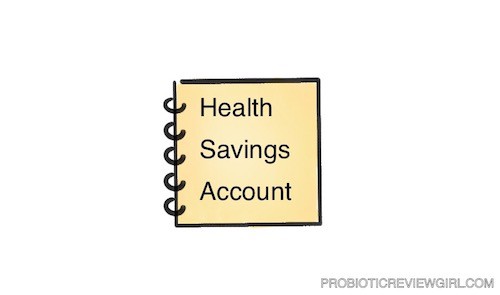Can You Buy Probiotics With HSA? Yes, But Do This
I created and sell my own probiotic supplement called FlowFlora and I had a question recently from a customer recently on wether or not they could use HSA to purchase my supplement for their Leaky Guy Syndrome.
While probiotics are generally considered dietary supplements and not a qualified medical expense, there are some circumstances in which they may be eligible for reimbursement under HSA or FSA plans.
In this blog post, I will explore the guidelines around using HSA and FSA funds for probiotics, including how to obtain a Letter of Medical Necessity (LMN) and whether health insurance covers probiotics.
Yes, You Can Buy Probiotics With HSA

Probiotics are considered dietary supplements and are not necessary for life. As per the IRS guidelines, to be eligible for an HSA contribution, an individual must be covered under a high deductible health plan (HDHP), have no other health coverage except what is permitted, not be enrolled in Medicare, and not be claimed as a dependent on someone else's tax return.
In some cases however, if you can get a Letter of Medical Necessity from your doctor, you may qualify for an HSA for purchasing probiotics supplements online. Employers have complete flexibility to offer various combinations of benefits in designing their plans, so it is important to check with your employer to see if probiotics are a covered expense under your HSA plan.
Can I Use HSA To Buy Probiotics For My Child?
AAs dietary supplements, probiotics are generally not considered a qualified medical expense under an HSA, unless they are used as part of a specific medical treatment and you have a Letter of Medical Necessity (LMN) from a doctor.
The rules regarding the use of HSAs for your baby may differ based on the specific HSA plan. If you get denied my advice would be to just stick with some organic probiotic yogurts or kefir milk for a low cost healthy dose of probiotic bacteria.
Can I Use FSA?
The same rules for HSA apply here and probiotics may be eligible for reimbursement under a flexible spending account (FSA) if they are considered a qualified medical expense. However, this depends on the specific FSA plan and its guidelines. It is best to check with your FSA provider to determine whether probiotics are eligible for reimbursement under your plan and also with your Doctor for a medical necessity letter.
How To Get A Letter Of Medical Necessity For Probiotics
To get a letter of medical necessity (LMN) for probiotics, you will first need to talk to your doctor or healthcare provider so that they can evaluate your medical history and determine if taking probiotics is medically necessary for you. Medical necessity means that taking probiotics is deemed necessary for treating or managing a medical condition or disease like with Diverticulitis for example.
When you discuss probiotics with your doctor, it is important to explain the specific symptoms or medical conditions you are experiencing and how you believe that taking probiotics will help alleviate them. Your doctor can then provide you with a detailed explanation of how probiotics will be medically beneficial to you and issue a letter of medical necessity if they determine that probiotics are necessary for your treatment.
Once you have the letter of medical necessity, you can submit it to your HSA provider, along with any receipts or documentation related to the purchase of probiotics, to demonstrate that the expense is a qualified medical expense under your HSA plan. It's unlikely that you will get a LMN for things like Leaky Guy Syndrome since this is still not medically recognized condition and more studies on the efficacy of probiotics are needed.
Will My Health Insurance Cover Probiotics?
In general, health insurance does not cover probiotics because they are considered dietary supplements rather than prescription medications. However, there may be some exceptions in certain cases like if a probiotic supplement is used as part of a clinical trial or if it is prescribed by a doctor for a specific medical condition. To get a complete answer to this question it's best to contact your provider directly.
It is important to check with your insurance provider to determine if they cover probiotics, as coverage can vary depending on your specific plan and the type of probiotic being used. Most probiotic supplements are not prescription and are relatively inexpensive, it may not be worth pursuing insurance coverage for them. BioFlor's Saccharomyces Boulardii for example is well studied and often prescribed for acute adult diarrhea but it's always priced at around $20 which is quite cheap and probably not worth contacting your insurance over.
Closing Thoughts
In summary, probiotics are generally not considered a qualified medical expense for HSA or FSA, but there are some circumstances where they may be eligible for reimbursement with a Letter of Medical Necessity from a doctor.
It's important to check with your specific plan and employer to see if probiotics are covered. While health insurance typically doesn't cover probiotics, there may be exceptions in certain cases. It's best to talk to your doctor and insurance provider to determine if probiotics are right for you and covered by your plan.

Alicia Harper is a NASM-CNC Certified nutritionist and the editor of ProbioticReviewGirl.
After suffering from recurrent gut issues she spent years researching Probiotics and the microbiome.
She has tested 29+ different Probiotics and is a probiotics expert. As a probiotic fanatic, she has valuable knowledge to share with the world.